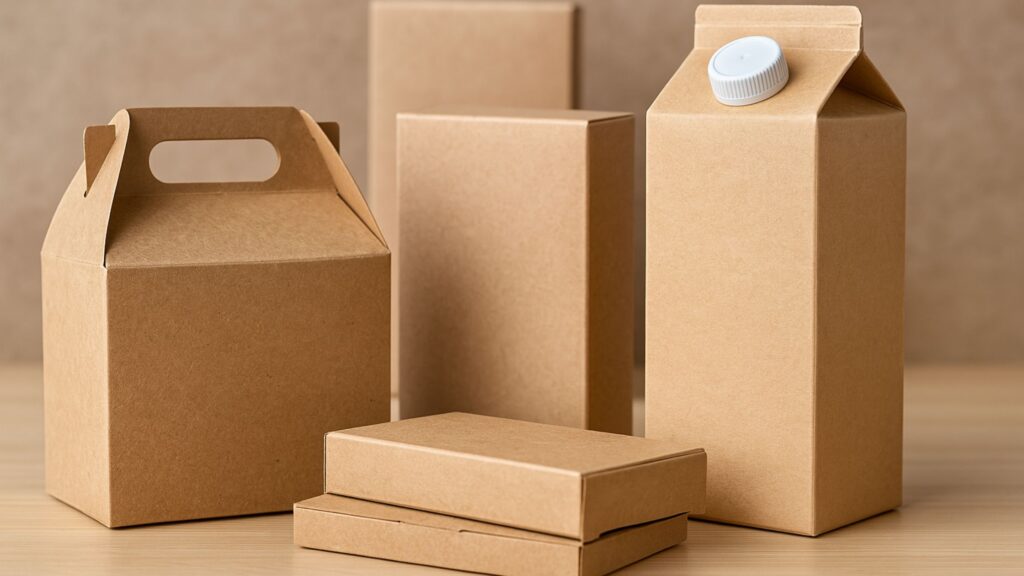Carton packaging has become an essential component in various industries, from food and beverages to pharmaceuticals and electronics. This versatile packaging solution is favored for its sustainability, cost-effectiveness, and ease of customization. As consumer awareness of environmental impact grows, the carton packaging industry is evolving to meet the demand for eco-friendly alternatives while incorporating technological advancements.
The Rise of Carton Packaging
Carton packaging has a long history dating back to the 19th century when cardboard was first developed. Over time, manufacturers refined the material and introduced folding cartons, corrugated boxes, and aseptic packaging to cater to different product needs. Today, carton packaging dominates the retail sector due to its ability to protect goods while providing an excellent medium for branding and communication.
Advantages of Carton Packaging
1. Sustainability
One of the primary reasons for the increasing popularity of carton packaging is its sustainability. Most cartons are made from renewable resources like wood pulp and can be easily recycled. Unlike plastic, which takes centuries to decompose, paper-based cartons break down naturally, reducing waste and pollution.
2. Cost-Effectiveness
Carton packaging is a cost-efficient solution for businesses. The raw materials are relatively inexpensive, and the lightweight nature of cartons reduces transportation costs. Additionally, the ability to print directly onto the carton eliminates the need for separate labels, saving both time and money.
3. Customization and Branding
Brands leverage carton packaging for its excellent printability and design flexibility. High-quality graphics, vibrant colors, and interactive elements can be added to cartons, enhancing the customer experience and reinforcing brand identity. Personalized packaging also plays a crucial role in consumer engagement and product differentiation.
4. Product Protection and Durability
Cartons provide a sturdy structure that protects products during transit and storage. Multi-layered cartons, such as corrugated boxes, offer extra durability and shock resistance, making them ideal for fragile items.
Innovations in Carton Packaging
The carton packaging industry is witnessing continuous innovations aimed at enhancing functionality and sustainability. Here are some of the latest advancements:
1. Smart Packaging Technologies
The integration of smart packaging features, such as QR codes, RFID tags, and augmented reality elements, is transforming the industry. These technologies improve supply chain tracking, provide consumers with additional product information, and enhance engagement through interactive content.
2. Biodegradable and Compostable Materials
With increasing environmental concerns, manufacturers are developing biodegradable and compostable carton packaging solutions. Some cartons are now produced with plant-based coatings instead of plastic laminations, ensuring they break down naturally without harming the environment.
3. Lightweight and Minimalist Design
Minimalist packaging is gaining traction as brands seek to reduce waste and production costs. Lightweight cartons use fewer materials while still maintaining durability and functionality. This approach aligns with the growing demand for eco-friendly packaging.
4. Edible and Water-Soluble Cartons
Some companies are experimenting with edible or water-soluble carton packaging made from natural ingredients. This innovation is particularly useful in the food industry, where reducing waste is a top priority.
Market Trends and Future Outlook
1. Growing Demand for Sustainable Packaging
Consumers are increasingly choosing products with eco-friendly packaging. Companies that adopt sustainable carton packaging practices gain a competitive edge by appealing to environmentally conscious buyers. Regulations on plastic waste are also pushing brands to switch to paper-based alternatives.
2. Rise of E-commerce Packaging
The surge in e-commerce has led to a higher demand for sturdy and efficient packaging solutions. Corrugated cartons are widely used for shipping due to their strength and recyclability. Innovations like easy-open designs and tamper-proof packaging further enhance the e-commerce experience.
3. Personalized and Limited-Edition Packaging
Brands are investing in limited-edition and personalized carton packaging to create exclusivity and drive sales. Custom packaging allows businesses to connect with customers on a deeper level, making products feel unique and memorable.
4. Advancements in Printing Technology
New printing techniques, such as digital and 3D printing, enable high-quality graphics and faster production times. These advancements help brands experiment with creative designs without incurring excessive costs.
Conclusion
Carton packaging is at the forefront of the sustainable packaging revolution. With continuous innovations and increasing consumer demand for eco-friendly solutions, the industry is poised for significant growth. Companies that invest in smart, biodegradable, and customized carton packaging will not only reduce their environmental footprint but also strengthen their brand presence in an evolving market. As technology advances and regulations push for greener alternatives, carton packaging will remain a dominant force in the packaging industry for years to come.
Related Articles
- Polybag Packaging: Benefits, Uses, and Sustainability
- The Versatility and Importance of Plastic Wrap Packaging
- Shredded Paper for Packaging: A Sustainable and Cost-Effective Solution
- Bubble Packaging: The Ultimate Solution for Protection and Sustainability
- Sandwich Packaging: Ensuring Freshness, Sustainability, and Appeal
- Biodegradable Food Packaging: A Sustainable Solution for the Future
- Eco Friendly Food Packaging: A Sustainable Choice for the Future
- Tissue Paper Packaging: The Eco-Friendly & Elegant Solution
- The Importance of Bakery Packaging: Enhancing Freshness and Branding
- Gift Packaging: Making Every Present Special

